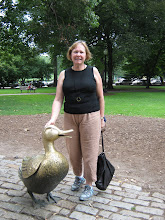
The Million Paws Walk is a national activity by the RSPCA (the Royal Society for the Prevention of Cruelty to Animals) held in May in Australia. Owners take their dogs walking on designated routes in various cities across Australia, with the aim of getting 250,000 animals participating and thus one million paws.
The first walk occurred in Queensland in 1994 and it became national in 1996. It began as a way to raise money and community awareness for disadvantaged animals.
Recently a new series of books RSPCA Animal Tales was issued by Random House. The first book in the series is called The Million Paws Puppy. The main character nine year old Cassie Bannerman and her dog Ripper actually take part in this annual fundraiser. So far there is four books in the series and they will certainly appeal to my Year 2 girls who can't seem to get enough of animal stories in the vain of Jenny Dale's Puppy Tales and Kitten Tales and Lucy Daniels' Little Animal Ark and these at least are Australian and have the added bonus of fact files in the back.


 making them even more fun so you probably don't need an excuse to share books about kites at all. In Sydney we have the Festival of Winds in September and I have written about it before
making them even more fun so you probably don't need an excuse to share books about kites at all. In Sydney we have the Festival of Winds in September and I have written about it before  ok for Marty and Mei-Ling by Phil Cummings and Craig Smith. It too is out of print but also has kite flying as a wonderful community-building catalyst. Two newer books which might inspire you to make and fly kites are:
ok for Marty and Mei-Ling by Phil Cummings and Craig Smith. It too is out of print but also has kite flying as a wonderful community-building catalyst. Two newer books which might inspire you to make and fly kites are: 


















